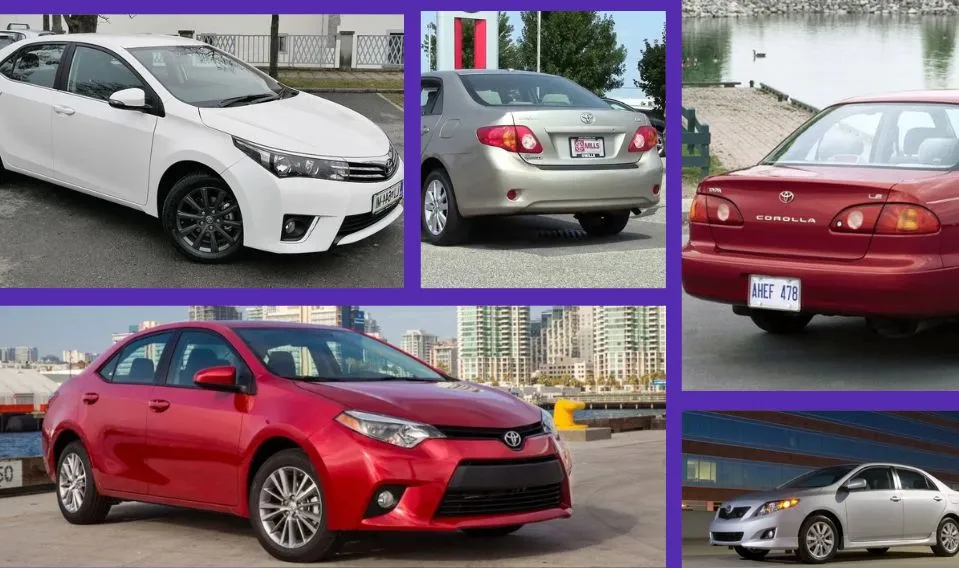Buying a used car is a big decision, and when it comes to a car like the Toyota Corolla, making an informed choice is even more crucial. This car has built a reputation for reliability, longevity, and affordability, making it a top choice for used car buyers worldwide. However, not all Toyota Corolla model years are created equal. While many Corolla years boast excellent durability and low maintenance costs, some have been plagued by common issues that can affect performance, safety, and long-term reliability.
In this guide, we’ll explore which Toyota Corolla years to avoid based on real-world data, expert opinions, and user feedback. Understanding these problem-prone years can save you from costly repairs and frustration in the future. Whether you’re looking for a reliable daily commuter or your first car, it’s essential to know which models may come with unexpected issues and which ones stand out for their reliability.
This article provides an expert guide on identifying the Toyota Corolla years that are best to avoid. We’ll cover the most common issues associated with specific model years, from mechanical problems to safety concerns and high repair costs. Our goal is to ensure you make a smart choice when buying a used Toyota Corolla by giving you the tools to spot potential red flags before it’s too late.
Though the Toyota Corolla is generally regarded as one of the most reliable vehicles on the market, certain years have faced significant problems. Transmission failures, safety recalls, and premature brake wear have been reported in some model years, making them less desirable on the used market. We’ve done the legwork for you, compiling data from trusted sources like J.D. Power, Consumer Reports, and the National Highway Traffic Safety Administration (NHTSA) to bring you a list of the Toyota Corolla years you should avoid.
This guide is backed by comprehensive research, including insights from mechanics, car owners, auto experts, and reliability data. We’ve reviewed customer feedback, automotive reviews, and recall history to provide you with the most accurate and up-to-date information.
Table of Contents
Why the Toyota Corolla is a Popular Choice
The Toyota Corolla has been a staple in the automotive world for decades. First introduced in the 1960s, it has earned a well-deserved reputation for being a dependable, affordable, and low-maintenance vehicle. For many buyers, the Corolla is seen as the epitome of a no-nonsense car that gets you from point A to point B without breaking the bank.
The Corolla’s Longstanding Reputation
The Toyota Corolla has always been praised for its reliability. It’s one of the best-selling cars in the world, with millions of units sold globally. Toyota has built a reputation for producing cars that last—many Corolla owners report driving their cars well beyond the 200,000-mile mark with minimal issues. It’s also known for having a low cost of ownership, meaning it’s easier and cheaper to maintain than many other vehicles in its class.
Another standout feature is its fuel efficiency. Toyota’s focus on creating economical, fuel-efficient cars makes the Corolla an ideal choice for those who need a reliable commuter vehicle. Whether you’re navigating city streets or taking longer highway trips, the Corolla consistently delivers excellent gas mileage.
Why Some Years Are Less Reliable
However, like any vehicle, not all Toyota Corolla models are created equal. While the Corolla has maintained an excellent overall reputation, some specific years have experienced more mechanical and safety issues than others. These issues can range from transmission failures and engine stalling to safety recalls. For instance, model years with significant redesigns or new technology can sometimes have initial quality problems that get ironed out in later models.
For example, the 2009 Toyota Corolla, despite being a popular choice at the time, had several complaints about transmission problems and engine stalling. Similarly, newer models have faced issues like oil consumption and problematic air conditioning systems. These kinds of defects, while not widespread across all Corollas, can significantly impact the overall driving experience and can be costly to fix.
Importance of Avoiding Problematic Years
When buying a used car, especially a Toyota Corolla, it’s important to avoid years with frequent reliability problems. By steering clear of problematic years, you’ll avoid costly repairs and enjoy a much smoother driving experience. Not only will this save you money in the long run, but it will also ensure safety and peace of mind—knowing you’re driving a vehicle that won’t let you down when you need it most.
The goal of this article is to help you make an informed decision and identify which Toyota Corolla model years are worth your attention and which ones you might want to avoid at all costs. Armed with this knowledge, you can confidently move forward with your purchase, knowing that you’ve made a choice that’s both practical and cost-effective.
Key Factors to Consider When Choosing a Used Toyota Corolla
When it comes to buying a used car, it’s easy to get caught up in the excitement of finding a good deal, but taking the time to evaluate key factors will help you make a smarter, long-lasting investment. The Toyota Corolla is no exception—while it is known for its reliability, certain features and characteristics are crucial to check to ensure you’re getting the best possible value.
1. Reliability
One of the main reasons people choose the Toyota Corolla is for its dependability. However, not all Corollas are created equal in this regard. Some years have more frequent mechanical issues than others, which can lead to costly repairs down the road. It’s important to research the repair history of the specific year you’re interested in and review user feedback from online forums and review sites.
- Maintenance Records: Ask for detailed maintenance records from the seller. A well-maintained Toyota Corolla is likely to perform better and last longer, even if it has higher mileage.
- Common Issues by Year: As we’ll cover later, certain years have been more prone to issues like transmission problems, engine stalling, or brake wear. These problems can affect reliability significantly.
2. Safety Features
The safety of your car is non-negotiable, and the Toyota Corolla has a strong reputation in this area. However, safety features can vary significantly by year. For instance, newer models come equipped with more advanced safety technologies, while older ones may lack these features.
- Crash Test Ratings: Check the safety ratings from reliable sources like the NHTSA or IIHS (Insurance Institute for Highway Safety). These organizations evaluate how well vehicles perform in crash tests and provide valuable insights into the car’s safety.
- Standard Features: Some important safety features to look for include airbags, ABS (Anti-lock Braking System), traction control, and stability control. Also, check for Toyota Safety Sense in newer models, which includes features like automatic emergency braking and lane-keeping assist.
3. Fuel Efficiency
The Toyota Corolla is often chosen for its fuel economy—a key consideration for many buyers, especially those who commute frequently. But fuel efficiency can vary between different years and models due to changes in the engine design and overall weight of the vehicle.
- Compare MPGs: Check the miles per gallon (MPG) rating for the specific model year. Older models tend to have slightly lower fuel efficiency compared to the newer hybrid models. For instance, the 2020 Toyota Corolla Hybrid offers impressive mileage of around 53 MPG city and 52 MPG highway.
- Engine Size and Transmission: The engine size and type of transmission (automatic or manual) can also impact fuel economy. A continuously variable transmission (CVT), for example, generally provides better fuel efficiency than a traditional automatic transmission.
4. Resale Value
A used car’s resale value is an important factor to consider if you plan on upgrading your car in the future. The Toyota Corolla holds its value better than many other vehicles due to its reputation for reliability and long-lasting durability.
- Historical Depreciation: Look at the resale trends for the model year you’re considering. Models from 2015 to 2019, for instance, have held strong resale value over the years, and they may offer a better return on investment if you plan to sell or trade in the car later on.
- Certified Pre-Owned (CPO): Consider buying a Toyota Certified Pre-Owned car. These vehicles are typically newer, in great condition, and come with an extended warranty, which can help with depreciation.
5. Ownership Costs
Before purchasing any used vehicle, consider the long-term costs associated with ownership. This includes insurance, repairs, and parts availability. One crucial aspect of ownership is regular maintenance, like oil changes. You can review the Goodyear oil change price to get an idea of ongoing maintenance expenses for a Toyota Corolla.
- Insurance Costs: The Toyota Corolla is typically affordable to insure, but the specific year and model can affect your premiums. Generally, newer Corollas are more expensive to insure than older models due to higher vehicle values.
- Parts and Repairs: The Corolla’s wide availability and long production history mean that parts are generally affordable and easy to find. However, certain years may have issues with specific parts (such as transmission problems or brake wear), leading to higher-than-usual repair costs.
By keeping these factors in mind, you can narrow down your options and make a smarter decision when choosing a used Toyota Corolla. Ensuring the car fits your needs for reliability, safety, fuel efficiency, resale value, and affordable ownership will help you get the most out of your purchase.
5 Worst Years of the Toyota Corolla to Avoid
While the Toyota Corolla is widely regarded for its dependability, not every model year has been flawless. Some years are notorious for specific issues that can affect their performance, reliability, and safety. In this section, we’ll highlight the Toyota Corolla years to avoid and explain why certain models have gained a reputation for being problematic.
While the Corolla is an overall solid choice, a few model years stand out due to widespread issues that often result in costly repairs and inconveniences. These years typically suffer from recurring mechanical issues, poor safety ratings, or frequent recalls. While not all vehicles from these years are problematic, understanding the issues associated with these models can help you make a better-informed decision.
Let’s take a closer look at the top Toyota Corolla years to avoid.
1. 2001 Toyota Corolla
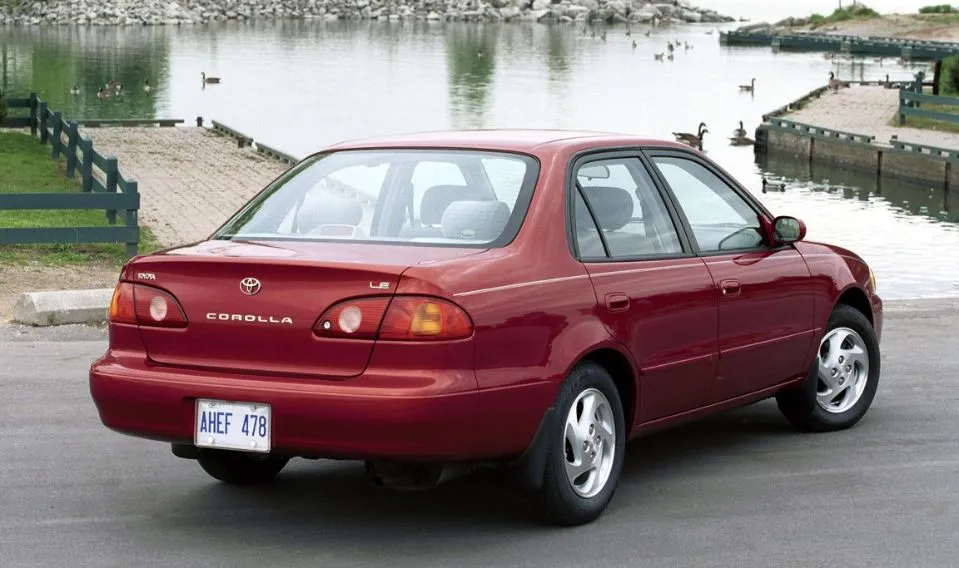
The 2001 Toyota Corolla is an older model, but it has remained popular on the used market. However, this year is not without its problems.
Common Issues:
- Rusting: Rust is a common problem for older models, and the 2001 Corolla is no exception. Rust can develop in the underbody, making the car unsafe to drive over time.
- Transmission Failure: Some owners have reported transmission failures, which can be expensive to repair in an older car.
- Safety Concerns: Older models may lack modern safety features like airbags and anti-lock brakes, which could put drivers at a disadvantage in the event of an accident.
Cost to Repair vs. Vehicle Value:
Because the 2001 Corolla is an older vehicle, the cost of repairing these issues might exceed the vehicle’s value. If you find a 2001 Corolla with extensive rust or transmission problems, it’s probably best to look for a more recent model.
2. 2009 Toyota Corolla
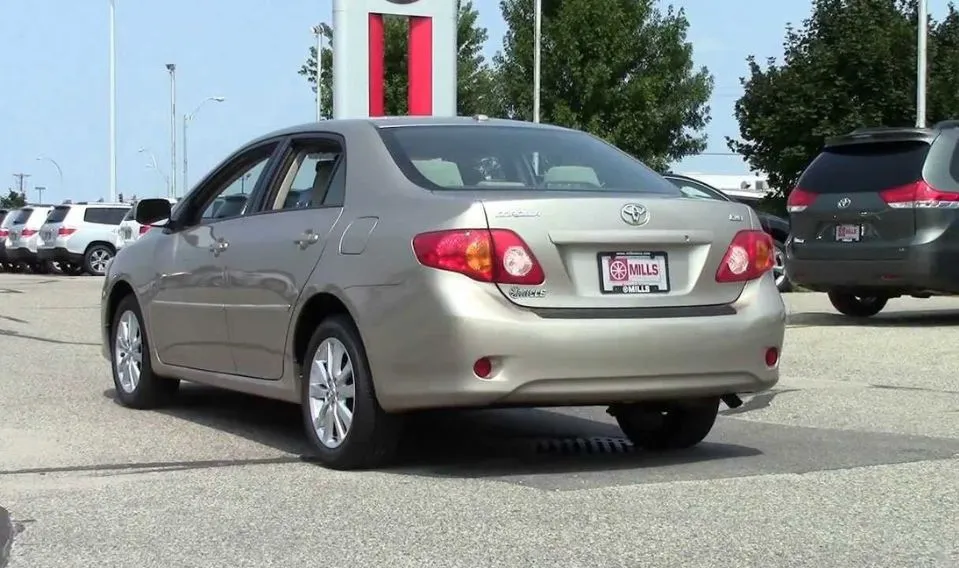
The 2009 Toyota Corolla is often cited as one of the worst years for the model. Despite being one of the most popular years in the Corolla lineup, it has earned a reputation for experiencing significant transmission problems and engine stalling.
Common Issues:
- Transmission Problems: Many owners have reported issues with the automatic transmission. The car may shift roughly, or in some cases, fail to engage properly, leading to a very jerky ride.
- Engine Stalling: The 2009 Corolla is also known for experiencing engine stalling, especially at low speeds or when idling. This can create safety risks and is difficult to diagnose.
- Premature Brake Wear: Some users have complained about the brake pads wearing down much faster than expected, which can lead to more frequent replacements.
Repair Costs:
- Transmission Repairs: Fixing transmission issues can be expensive and may require a complete transmission replacement, costing upwards of $3,000.
- Engine Stalling Issues: Repair costs for stalling problems can vary, but some owners report paying hundreds of dollars for diagnostic tests and repairs.
Expert Opinions:
Many mechanics and auto experts recommend avoiding the 2009 model due to these frequent issues, especially if you’re looking for a used Corolla that will be low-maintenance. While the car may still run fine with a well-maintained vehicle, the potential for costly repairs makes this year less desirable.
3. 2010 Toyota Corolla

While the 2010 Toyota Corolla improved on many aspects compared to its predecessor, it still suffers from some recurring issues that make it a less reliable choice.
Common Issues:
- Steering Column Issues: Some 2010 Corollas have been known to develop problems with the steering column, causing unusual noises and, in some cases, making the vehicle difficult to steer.
- Air Conditioning Failures: There were also widespread complaints regarding air conditioning problems, such as the system failing to blow cold air or breaking down prematurely.
- Premature Brake Wear: Just like the 2009 model, the 2010 Corolla has had issues with brake pads wearing out faster than expected.
Safety Recalls:
- The 2010 Toyota Corolla has had several safety recalls, particularly regarding the airbags. These recalls can be a major concern, especially if you’re considering a used model. Always check the Vehicle Identification Number (VIN) to verify whether the car you’re interested in has had these issues addressed.
Real-World Data:
Consumer reviews from forums and car-buying sites report high incidences of the steering and A/C problems in the 2010 Corolla, making it a year to avoid for potential buyers looking for a hassle-free experience.
4. 2014 Toyota Corolla
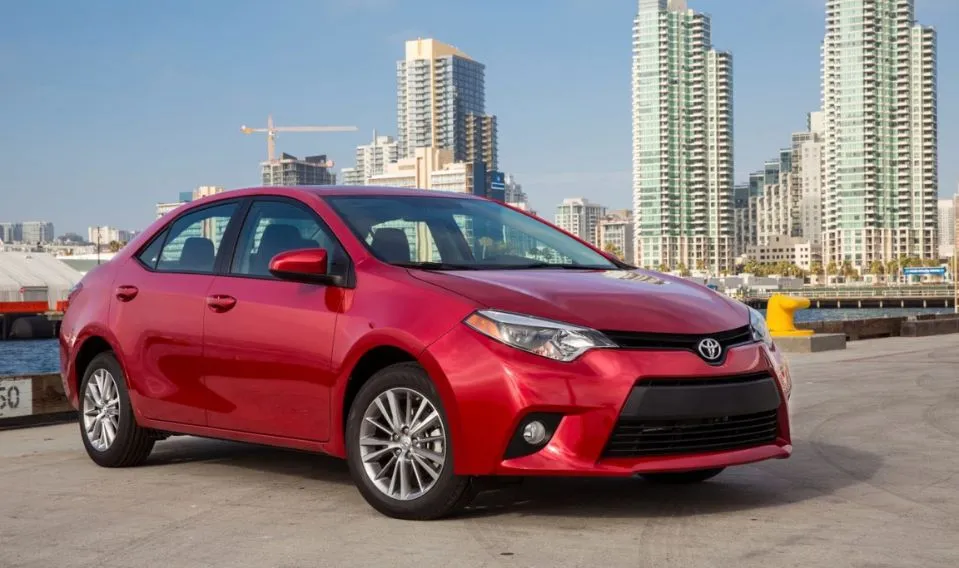
The 2014 Toyota Corolla saw some design changes, but it still wasn’t free of issues that impacted its overall reliability.
Common Issues:
- Poor Ride Quality: While the 2014 model was marketed as a more comfortable and refined version, many owners report that the ride quality still falls short, especially compared to other compact sedans.
- Transmission Issues: The CVT (Continuously Variable Transmission) on the 2014 Corolla has been prone to stuttering and unresponsiveness at times, leading to less smooth acceleration.
- Interior Quality Complaints: The interior materials in the 2014 Corolla were widely criticized for feeling cheap and not holding up well over time. Many owners have reported wear and tear issues, especially in the seats and dashboard.
Expert Reviews:
Many automotive reviewers noted that while the 2014 Corolla had a sleek look, it didn’t quite live up to the expectations set by its predecessors. Issues with comfort and transmission performance have led some to recommend looking at alternative years.
5. 2016 Toyota Corolla
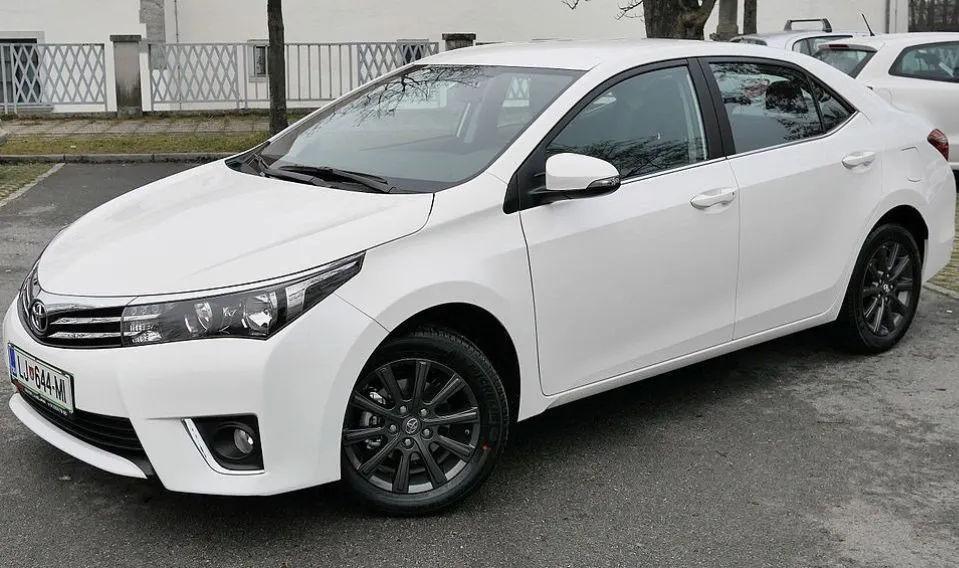
The 2016 Toyota Corolla, while a newer model, has faced complaints related to oil consumption and engine stalling, both of which can become major headaches.
Common Issues:
- Excessive Oil Consumption: Several owners have reported that the 2016 Corolla uses oil at an accelerated rate, requiring frequent top-offs between oil changes.
- Engine Stalling: Like some of its predecessors, the 2016 model has experienced engine stalling issues, which can be particularly dangerous when driving at highway speeds.
Consumer Feedback:
Many users have shared their frustrations with these issues on car forums and social media platforms. The 2016 Corolla’s oil consumption problem is especially concerning for those who rely on their cars for daily driving.
Frequently Asked Questions About Toyota Corolla Years to Avoid
1. What is the Best Year for a Used Toyota Corolla?
The 2019 Toyota Corolla is the best for modern features and safety. 2015 is a solid choice for reliability and low maintenance, while the 2010 Corolla (post-fix) is also a good option if it’s well-maintained.
2. Which Corolla Years Have the Most Recalls?
The 2010 Corolla had several recalls, especially related to airbags and steering column issues. The 2009 and 2016 models also experienced recall issues, particularly with the transmission.
3. How Long Do Toyota Corollas Typically Last?
With regular maintenance, a Toyota Corolla can last between 200,000 to 300,000 miles, with many owners reporting even higher mileages.
4. Are There Any Common Transmission Problems in Toyota Corolla Models?
Yes, 2009, 2010, and 2016 models are known for transmission issues, including rough shifting and stalling. Check for repairs or replacements before buying.
5. How Do I Know if a Used Toyota Corolla is Worth Buying?
Check the vehicle history report using the VIN, look for signs of wear, and have a mechanic inspect the car before purchasing to ensure it’s in good condition. In case of any disputes after a purchase, you may also want to understand how to prove you are not at fault in a car accident.
Conclusion:
While the Toyota Corolla is generally a reliable car, these specific years (2009, 2010, 2014, 2016, and 2001) have been associated with frequent mechanical issues, safety recalls, and high repair costs. By avoiding these model years, you’ll reduce the likelihood of encountering costly problems down the road and increase your chances of getting a dependable, low-maintenance vehicle. Now that we’ve covered which years to avoid, let’s take a look at the best Toyota Corolla years to buy—the ones that have proven themselves to be both reliable and well-suited for used car buyers.

